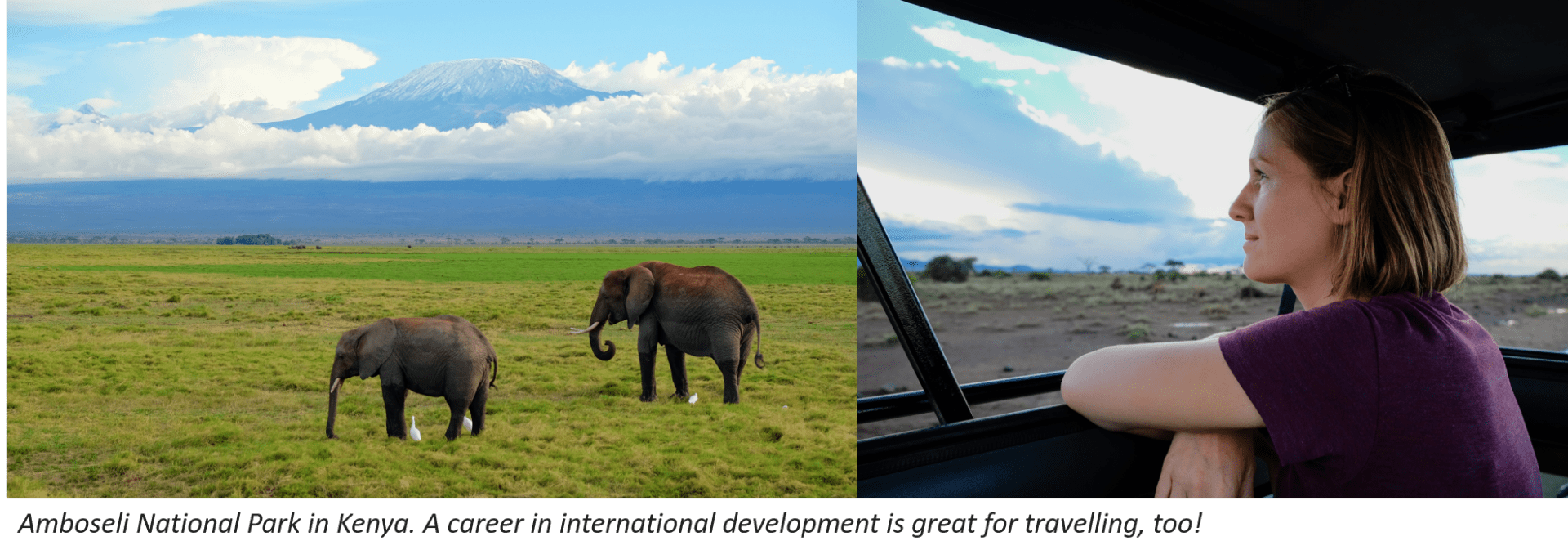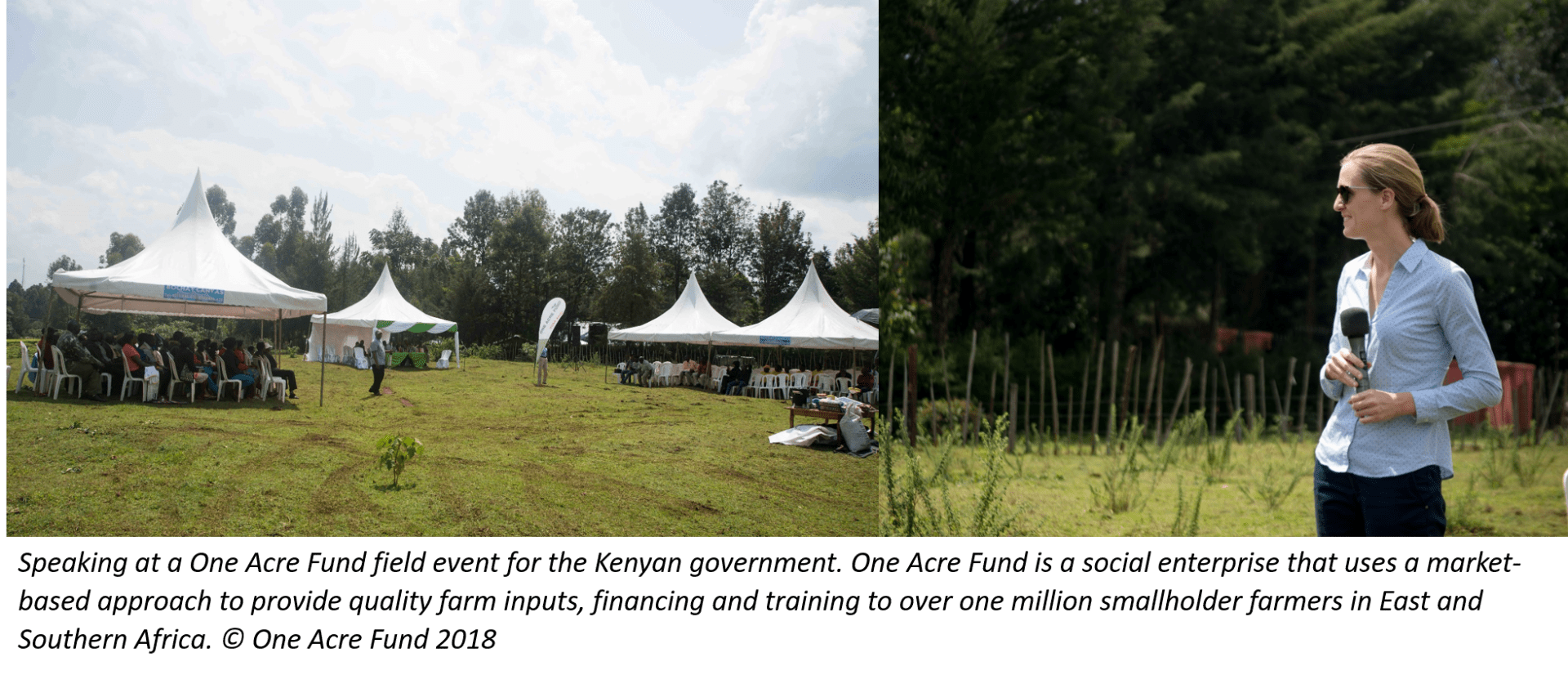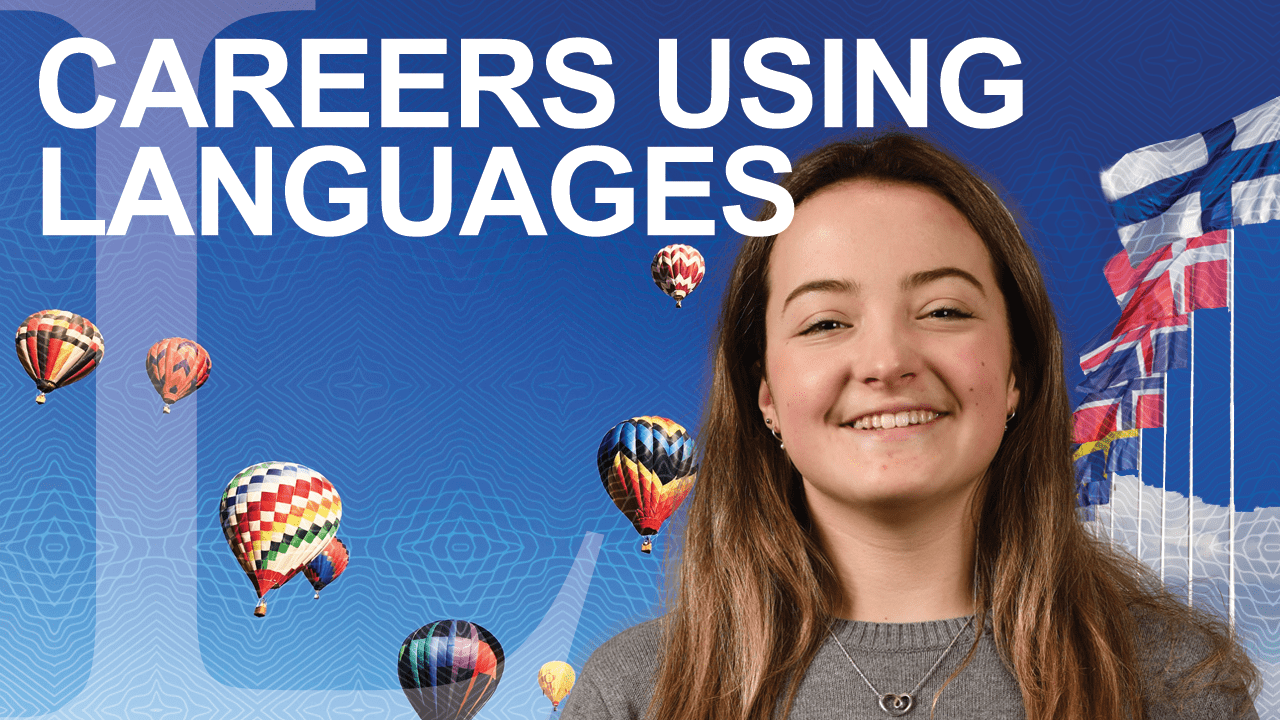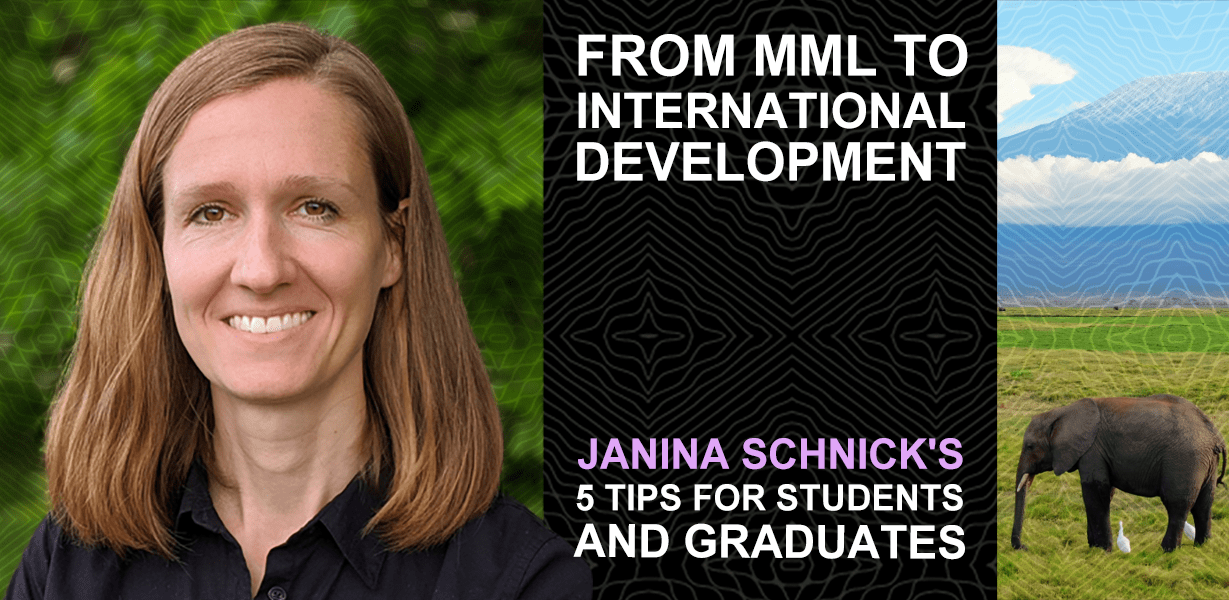Janina Schnick, Magdalene College MML alum, has worked on a range of development projects around the globe, with a focus on sustainable agriculture in low and middle-income countries. She shares her 5 tips for those desiring a career in international development.
Since I graduated in 2011, many MML students have reached out to me to ask how I built my career in international development. My path was far from linear: over the past ten years, I have worked for NGOs, consulting firms and social enterprises in Africa, Europe and Latin America. People from all sorts of backgrounds come to work in the sector and MML skills can be really useful. While there are many ways to get involved, it’s not always easy to get a foot in the door, so here are some tips to help determine your entry strategy.
Decide if you want to be a specialist or a generalist.
Broadly speaking, there are two routes into development: as a generalist or as a specialist. Specialists study a specific subject (e.g., law, medicine, agriculture) or train in a profession before joining the sector (e.g., HR, IT, accounting). Generalists enter development without a dedicated profession, but bring a range of transferrable skills relevant to different roles in the sector (e.g., management, communications, research). Ask yourself if you want to contribute a specific skill to development or work in a range of roles across the sector. There is no right or wrong, and neither is better than the other! I consider myself a generalist and have held positions in global health and agriculture without being a doctor or agronomist. While my roles required critical thinking, structured analysis and strategic communication, the necessary technical knowledge could be acquired on the job. This is not the case for specialist roles: I certainly couldn’t breed seeds or administer vaccines. If you choose the specialist route, you’ll likely need to invest in further education or training.
Try to get exposure to different roles and environments to determine your comfort zone and areas of interest.
Build experience early.
Most jobs require some work experience, so use your time at university or after graduation to get involved in different development initiatives and build your CV. I used my Year Abroad to volunteer in Togo, intern at UNESCO in Paris and work for an NGO in Bologna and Brazil. There are also plenty of opportunities to build experience through student societies at Cambridge, such as the UN Association. Try to get exposure to different roles and environments to determine your comfort zone and areas of interest. For instance, providing humanitarian relief in a conflict zone is not the same as implementing a project in a stable middle-income country.

Be creative in identifying opportunities.
There are dedicated development portals to identify opportunities – for a start, check out The Idealist, Devex, UNjobs or Bond, and set up LinkedIn job alerts. University internship schemes are also worth researching. I interned with the Vaccine Alliance GAVI in Geneva through the Cambridge Global Health Internship Scheme*, and several of my peers transitioned to full-time jobs after their internships. Aside from the formal routes, consider contacting organisations directly. For my Year Abroad, I looked up every NGO in Bologna and emailed those that seemed interesting. It was a bit tedious, but it paid off. Networking is key because many roles are found through connections. Large institutions like the World Bank and UN receive thousands of applications, so if you can get a contact in the organisation you’re applying to, ask them for a recommendation or advice on how to stand out. Smaller organisations are a good bet too as they tend to be more responsive and give you more responsibility.
As a university student/graduate, your time is worth more than nothing, so you should feel confident in pursuing paid opportunities.
Go for paid opportunities.
There seems to be an expectation in the non-profit sector that people will work for free or accept lower compensation than in other industries. In reality, not everyone can afford to work unpaid and you shouldn’t have to. As a university student/graduate, your time is worth more than nothing, so you should feel confident in pursuing paid opportunities. If you do pursue volunteer work – which can be valuable to build experience you otherwise can’t get – funding from your college or the university might be available. For my project in Togo, I got support from a college travel scholarship.
The private sector is not your enemy.
Working in development doesn’t have to mean working for an NGO or the UN. There is an increasing shift away from ‘traditional aid’, with many alternative models emerging. (The full context to this debate exceeds my word limit, but you may want to check out Dambisa Moyo’s Dead Aid.) When researching jobs, consider social enterprises and companies. Social enterprises apply private sector approaches to non-profit causes. For-profit companies may sell products that help development (think solar lamps) or run Corporate Social Responsibility initiatives. Some consulting firms also have branches advising development organisations. I am not advertising one thing over another here, but remember there are many routes to explore!

For more on international development and similar careers, check out our International Development, International Organisations, and Public Sector webpages.
*Unfortunately, the Cambridge Global Health Internships are currently not being run.


